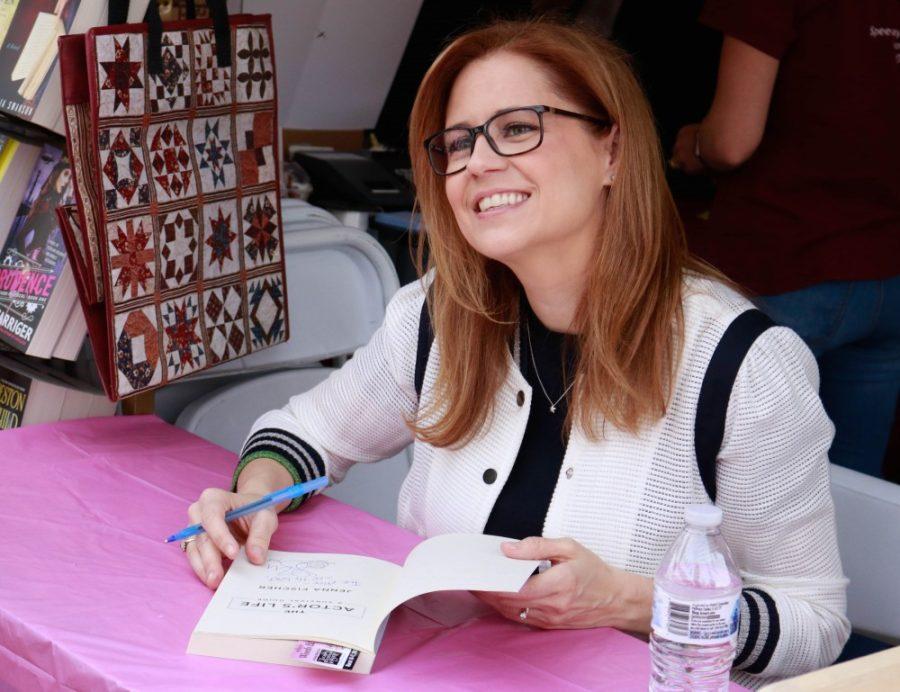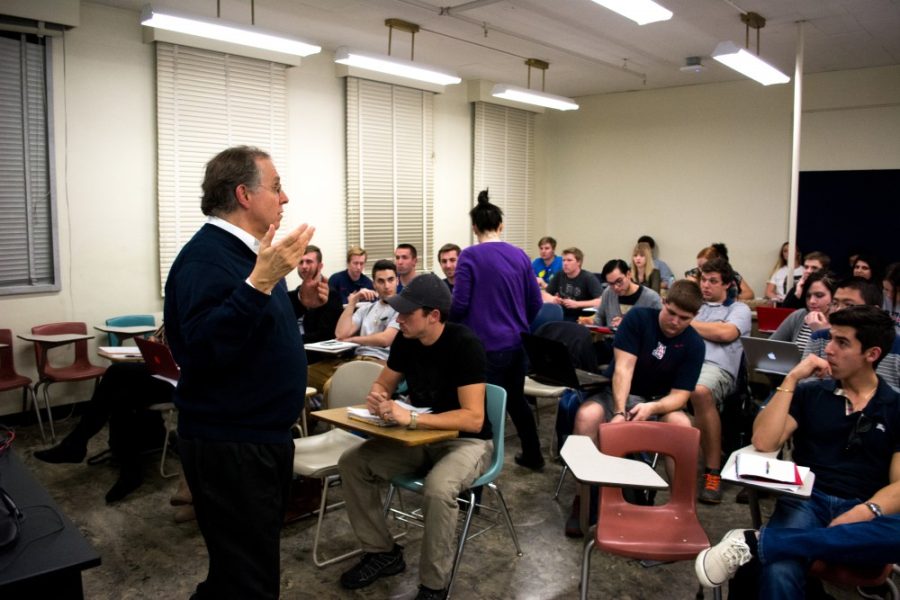Jenna Fischer’s book, “The Actor’s Life, A Survival Guide,” talks about the fundamentals on how to make it in show business by providing the highs and lows in her career and guidance. The Daily Wildcat spoke with Fischer about the hardships and rejection she faced for years before making her big break, advice for aspiring actors and her overall journey to becoming an established actor.
RELATED: ‘Dreaming in Color: Latinx Comic Universe’ reveals the world of latinx comics to the masses
• • •
Daily Wildcat: What inspired you to format the book as a guide instead of a typical memoir?
Jenna Fischer: I felt like there were so many practical things that I wanted to share with actors about what I learned while I was struggling and making my way in the early years in Los Angeles.
It felt like a memoir couldn’t properly contain that kind of information. Also, I wasn’t really interested in writing a memoir. I wanted to write a book I wish I had when I arrived in Los Angeles.
I really admire young artists, actors and writers. Personally, I found that there was more discouragement than encouragement when I was starting out, so I wanted to be a voice of encouragement. That was the major inspiration behind writing the book.
DW: Why did you choose Steve Carell as the person for the foreword?
JF: Steve is my friend and I also know that Steve had a long journey. We talked about it many times while working on “The Office.” In fact, that was a common trait among all of the cast members.
When the show became successful, Steve had been an actor for 20 years already and he worked a long time here and there; we all had. I just knew that he would identify with the message of the book and also because he would be really funny.
DW: In the book, you talk about how if you want to become an actor, you must live an artistic life and interact with others. What do you believe can help introverts who want to become actors get out of their comfort zones?
JF: I would advise them to join an acting class. A class provides structure and an immediate community which will allow you to connect with other people. Branching out and collaborating with others will help you in the long run.
DW: At the beginning of your career, you auditioned to be a part of an “International Spice Girls group,” which you later found was a scam. Can you explain why it is imperative for young aspiring actors to go on verified websites or use reliable sources to look for open calls?
JF: There has to be a type of common sense that you employ when you are looking for acting work and sometimes, like myself, I would be so blinded by my own ambition that I would ignore clear warning signs or clear red flags.
That is what the story illustrates. It is really best to look for auditions and roles from credited websites, which I list in my book.
Other common sense things include, for example, if you live in a place like Omaha, Nebraska, it is very unlikely that a real top casting agent or talent agent is scouting your city. Don’t pay that person $300 to audition for them because most likely they don’t really work for that agency that they are trying to represent.
It is important to do investigative work and make sure that all of the factors check out. You shouldn’t have to pay for an audition, ever. Casting directors are paid by the movie or television studios, not paid by the actors.
Keep in mind that sometimes, people prey on newcomers and their lack of knowledge about how the system works so be aware of your surroundings and source of information.
DW: In the book, you talk about how it took you nearly eight years before landing a major role. How much of a game changer was it when you landed the role of Pam Beesly on “The Office?”
JF: It was a huge game changer and the main message of the book is that people often think that successful people were instantly successful or that their talent/skill was instantly recognized and frankly, that is not the case.
That is why my story about meeting Molly Shannon was so significant to me when I first moved to Los Angeles. I met Molly Shannon and I was working as a typist at an event that she was attending. I got to talk to her and she told me that she went through 10 years of struggling before she landed a part on “Saturday Night Live.”
I remember thinking that Molly Shannon is so talented, why would it take her 10 years to get noticed? The other thing I thought of is that even if you are talented, it takes a long time.
Don’t start to believe that you don’t have what it takes just because you’re facing road blocks and frustration. Part of the test of becoming a working actor is being able to be resilient and work through those road blocks in whatever way you can.
As long as you are getting messages and small successes along the way, you need to have a good judgment of your progress. If you are in the same place you were four years ago, then maybe this isn’t the thing for you or maybe you are simply not doing the right thing to get ahead.
If you are getting callbacks, have a talent agent and each year is better than the last, then you are probably on the right track.
DW: Would you say that working in comedies is where you feel most comfortable?
JF: Yes, I really do like working in comedies, but I like working in the kind of comedies that are character-based. Less about the sight gags or one-liners and more character-based comedies like “The Office” or my new show “Splitting up Together.”
For example, my new show, “Splitting up Together,” allows viewers who do not have any prior experience or knowledge about divorce to identify with some of the themes of the show and it is also a positive portrayal of divorce and of parents that are co-parenting and concerned about their children’s emotional lives through this new chapter.
I like comedies where there are moments of sadness or moments that don’t revolve around humor all the time. This is my personal taste, and I tend to gravitate towards that.
DW: Why have you decided to showcase your book at the Tucson Festival of Books?
JF: This is the place to go and find great new books. I know there is usually a huge turnout and a variety of authors that go. It has an excellent reputation and I am excited to be a part of it.
DW: What is the number one lesson you want aspiring actors and actresses to learn from your book?
JF: The number one lesson is that you must create your own work with other artists and create your own momentum. You can’t wait for other people to jump and give you jobs.
A huge part of your learning and readiness regarding being prepared for a professional actor’s life is going to come from practicing your craft with other artists like you. Everybody I know that is an actor has side projects.
Will Ferrell is a great example of this. He is always making little YouTube videos with his friends or creating Funny or Die (the website) and making short films, etc. He is not doing this because he is getting a huge paycheck, he is a creative person who is compelled to create content that he loves.
You need to have that energy in order to be successful in this business. The single biggest piece of advice that I have for people is to tap into that energy and get started now.
RELATED: Tucson Festival of Books, By the Numbers
Jenna Fischer’s event is on Saturday, March 10 in the UA Bookstore from 1-2 p.m. Click here for more information. Fischer will also available to sign books from 11 to 11:45 a.m. that day in the Mostly Books booth.
Follow Sharon Essien on Twitter









